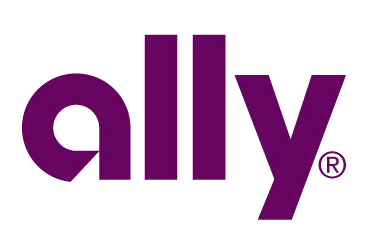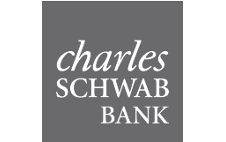Best National Banks of 2025
Many or all of the products on this page are from partners who compensate us when you click to or take an action on their website, but this does not influence our evaluations or ratings. Our opinions are our own.
The best national banks are available across the country and offer extensive ATM networks as well as features like sign-up bonuses and strong interest rates. Two offer brick-and-mortar locations, and the others are available only online.
5 largest national banks
If you're most interested in being able to visit a bank branch, you might want to explore the largest national banks instead. Here are the top five in the U.S., based on their assets, that mostly have at least 1,000 branches across 15 or more states. You can read more about each in our reviews.
Read more about these banks:
Chase: Great sign-up bonus for checking; more than 4,700 branches and more than 15,000 ATMs.
Bank of America: Solid online experience and a virtual financial assistant in the mobile app; about 3,700 branches and about 15,000 ATMs.
Wells Fargo: Easy-to-waive monthly fees on checking; about 4,100 branches and about 11,000 ATMs.
Citibank: Strong presence abroad with locations in 90 countries; more than 600 branches in the U.S. and more than 65,000 ATMs.
U.S. Bank: 24/7 live support available by phone; more than 2,000 branches and about 40,000 ATMs as part of the MoneyPass network, plus other ATMs.
Why you can trust NerdWallet: Our writers and editors follow strict editorial guidelines to make sure our coverage is fair and accurate, so you can choose the financial accounts that work best for you. See our criteria for evaluating banks and credit unions.
Here’s a closer look at the best national banks of 2025.
Nerdy Tip
If your federally insured bank fails, Federal Deposit Insurance Corp. insurance keeps your money safe up to $250,000 per depositor, per institution and per ownership category.
Best National Banks
Our pick for
Sign-up bonus and branch access (separately)
Our pick for
Overall bank
Our pick for
ATM access
Our pick for
Savings
Our pick for
Checking
Best national banks
Financial Institution | Savings APY | Minimum deposit to open savings |
|---|---|---|
3.60%. | $0. | |
0.15%. | $0. | |
0.01% effective as of 02/10/2023. Interest rates are variable and subject to change. | $0. | |
3.70%. | $0. | |
4.01%. | $0. |
» COMPARE: See our list of best banks and credit unions
Keep in mind that having branch access usually means paying more in fees and earning less interest. If you're curious what you'd be giving up in returns by storing your money in a brick-and-mortar bank, run your balance through our savings calculator.
National banks FAQs
What does it mean to be a national bank?
For this roundup, national banks are financial institutions with a presence in at least 15 states. This includes banks with physical branches as well as those that are online-only. Accounts at the online banks are available to people living in almost every state. For banks with branches, we considered only those that had at least 1,000 locations. In general, banks without branches are also called online banks.
» Learn more about what is a bank & types of banks
What makes big banks different from smaller banks?
Big, national banks serve more of the country than regional or community banks do. A regional bank might serve only a few neighboring states; a community bank might serve only one city within a state.
National banks tend to have more technological resources and a wider variety of products than smaller banks; on the other hand, smaller banks can offer more personalized service.
How much interest do the best big banks pay?
The best national brick-and-mortar banks don't always pay the highest interest rates on savings products. Like other brick-and-mortar banks, they might pay around the national average for savings — 0.41% — or less.
And like other online banks, the best national online banks often have higher APYs than their brick-and-mortar counterparts.
» SEE: the best high-yield online savings accounts
Are national banks better than other kinds of banks?
That depends on what you're looking for. If your biggest priority is in-person accessibility, a national, brick-and-mortar bank might be a good fit. You're more likely to find a branch no matter where you live. If you're interested in the best rates and large ATM networks, one of the best national online banks might be a good fit. Consider the pros and cons of different banking institutions in our guide to choosing a bank.
If having access to a branch when you're far from home isn't a priority and you value in-person, personalized service, a regional or community bank might be better for you.
Are the best national banks brick-and-mortar banks?
Not necessarily. Many of NerdWallet's picks for best national bank are online, because they often offer better deposit interest rates than brick-and-mortar banks do. But some brick-and-mortar banks stand out for other reasons, such as solid sign-up bonuses or customer service.
» Find out what sign-up bonuses banks are offering this month
Many online banks allow people to sign up from almost anywhere in the U.S., while most brick-and-mortar banks have some states they don't serve. For example, Chase has branches across the country, but its coverage is just shy of all 50 states.
What makes the best national brick-and-mortar banks different from the best national online banks?
The best national brick-and-mortar banks and the best national online banks have different pros and cons. Brick-and-mortar banks are more likely to offer promotions or welcome bonuses for new accounts, while online banks are more likely to pay higher rates on savings.
While both are available to many people in the U.S., brick-and-mortar banks offer in-person accessibility. Online banks can offer large third-party ATM networks, though.
Is my money safer in a national bank vs. a regional bank (or a national credit union vs. a regional credit union)?
Your money is equally safe in any bank that's insured by the Federal Deposit Insurance Corp. As long as your bank has this protection — and most banks do — you're insured for up to $250,000 per person, per ownership category, per bank.
Similarly, your money is equally safe in any credit union that’s insured by the National Credit Union Administration. Credit unions that have this protection insure your money for up to $250,000 per person, per account, per credit union.
» Read up on FDIC insurance
What is the No. 1 bank in America?
Currently, the largest bank in America by asset size is Chase Bank. It has branches in nearly all states (there are no branches in Alaska) and about 15,000 ATMs, as well as extended hours for customer service via phone.
That doesn't necessarily mean Chase is the bank you should choose, though. Weigh its interest rates, fees and additional factors against other options in your area before making a choice.
» Learn more: How to choose a bank
Which bank is the best rated in America?
There are many ways of rating a bank, but customer satisfaction is an important one. According to the J.D. Power 2024 U.S. Retail Banking Satisfaction Study℠, Capital One won in two regions, more than any other bank: the Mid-Atlantic region and the New York Tri-State region.
What are the top 10 banks in the United States?
According to the most recent Federal Reserve data, the top 10 commercial banks in the U.S. by assets are:
Chase Bank.
Bank of America.
Citibank.
Wells Fargo.
U.S. Bank.
Goldman Sachs.
PNC Bank.
Truist Bank.
Capital One.
TD Bank.
Many of these banks have large branch and ATM networks and offer a comprehensive set of financial accounts and loans. Before signing up with one, you should consider your priorities, including interest rates and accessibility.
Which is better: Chase vs. Wells Fargo? Wells Fargo vs. Bank of America?
The best bank for you depends on which services you use the most and which bank has the most branches and ATMs nearby, so it’s worth digging into the details.
You can read more in NerdWallet’s head-to-head comparisons of the country’s biggest banks:
Which national banks will pay me a bonus?
Many national banks consistently offer sign-up bonuses for new customers who open accounts. These days, it’s not unusual to find bonuses of between $100 and $300.
You can learn more about bonuses in NerdWallet’s list of the best bank promotions.
Last updated on December 9, 2024
Methodology
We took a close look at over 100 financial institutions and financial service providers, including the largest U.S. banks based on assets, internet search traffic and other factors; the nation’s largest credit unions, based on assets and membership; and other notable and/or emerging players in the industry. We rated them on criteria including annual percentage yields, minimum balances, fees, digital experience and more.
For this roundup, we considered only those brick-and-mortar banks with at least 1,000 branches in at least 15 states and broadly available online banks across various categories.
Financial institutions and providers surveyed are: Affirm, All America Bank, Alliant Credit Union, Ally Bank, Amalgamated Bank, America First Credit Union, American Express National Bank, Andrews Federal Credit Union, Associated Bank, Axos Bank, Bank of America, Bank5 Connect, Barclays, Bask Bank, Bethpage Federal Credit Union, BMO, BMO Alto, Boeing Employees Credit Union, Bread Savings, BrioDirect, Capital One, Carver Federal Savings Bank, CFG Bank, Charles Schwab Bank, Chase, Chime, CIBC U.S., CIT Bank, Citibank, Citizens, Citizens Bank, City First Bank, Climate First Bank, Commerce Bank, Community First Credit Union of Florida, ConnectOne Bank, Connexus Credit Union, Consumers Credit Union, Current, Customers Bank, Delta Community Credit Union, Discover® Bank, E*TRADE, EverBank, Fifth Third Bank, First Foundation, First Internet Bank, First National Bank, First Tech Federal Credit Union, Flagstar Bank, FNBO Direct, Flagstar Bank, Forbright BankGlobal Credit Union, GO2bank, Golden 1 Credit Union, Greenwood, Hope Credit Union, Huntington Bank, Industrial Bank, Ivy Bank, Jenius Bank, KeyBank, Lake Michigan Credit Union, Laurel Road Bank, LendingClub Bank, Liberty Bank, Live Oak Bank, M&T Bank, Marcus by Goldman Sachs, My Banking Direct, NASA Federal Credit Union, Navy Federal Credit Union, NBKC, Newtek Bank, One, OneUnited Bank, Pentagon Federal Credit Union, PNC, Poppy Bank, Popular Direct, Quontic Bank, Regions Bank, Revolut, Salem Five Direct, Sallie Mae Bank, Santander Bank, SchoolsFirst Federal Credit Union, Security Service Federal Credit Union, Securityplus Federal Credit Union, Self-Help Credit Union, Service Credit Union, SoFi, State Employees’ Credit Union of North Carolina, Suncoast Credit Union, Synchrony Bank, TAB Bank, TD Bank, Truist Bank, U.S. Bank, UFB Direct, Upgrade, USAA Bank, Varo, Vio Bank, Wells Fargo, Western Alliance Bank and Zynlo Bank.
NerdWallet's Best National Banks of 2025
- Chase: Best for Sign-up bonus and branch access (separately)
- Ally Bank: Best for Overall bank
- Schwab Bank: Best for ATM access
- UFB Direct: Best for Savings
- Discover® Bank: Best for Checking




